The human mind has always been a source of fascination, inspiring countless theories and studies. One of the most intriguing phenomena that the mind can produce is precognitive dreams. These dreams seem to offer glimpses of the future or reflect events that have not yet happened, leaving many people perplexed and in wonder. Precognitive dreams have been the subject of intense study and speculation for many years, with various scientific and spiritual theories attempting to explain their existence. In this article, we will delve into the mysteries of precognitive dreams and explore the different theories and studies that attempt to unravel their secrets.
Understanding Precognitive Dreams:
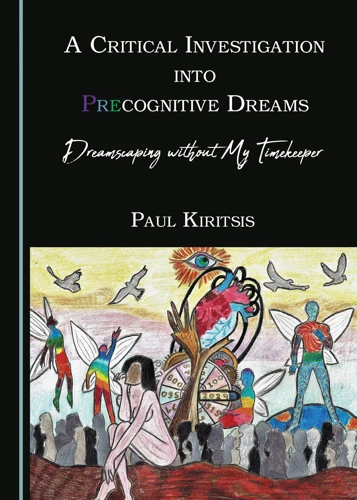
Have you ever woken up from a dream, only to find that it came true in real life? This is the mysterious phenomenon known as precognitive dreams. Precognitive dreams have puzzled scientists and the general public alike, with many questions surrounding their validity and explanations. In this section, we will delve into the world of precognitive dreams, exploring the definition of these dreams, the different types of precognitive dreams, and the commonalities among them. Get ready to see how the science behind precognitive dreams works.
Definition of Precognitive Dreams
Precognitive dreams are a type of paranormal phenomenon that has been experienced by many individuals throughout history. These dreams are often defined as **dreams that predict future events**, and are believed to be a form of extrasensory perception or psychic ability. While many people are skeptical about the existence of precognitive dreams, there are also many who believe that they are a very real and powerful experience.
According to paranormal researchers, **precognitive dreams can be defined as dreams that seem to foretell future events**, either directly or indirectly. These dreams can involve a wide variety of different scenarios, from trivial events to major life-changing experiences. Many people who experience precognitive dreams report feeling a sense of deja vu when they eventually encounter the events that were predicted in the dream.
The experience of having a precognitive dream can be a very confusing and perplexing one for those who have never experienced it before. The idea of having a dream that predicts the future defies conventional scientific explanations and can leave individuals feeling unsure about what they have experienced. However, for those who have experienced precognitive dreams, the feeling that what they have experienced is real and powerful can be overwhelming.
To help better understand the nature of precognitive dreams, let’s take a look at the following table:
| Aspect | Description |
|---|---|
| Type of Dream | Predicts future events |
| Timeline | Dream occurs before event takes place |
| Content | Can involve a wide variety of scenarios, from trivial to life-changing |
| Sensation | May leave individual feeling a sense of deja vu when the predicted event eventually occurs |
Precognitive dreams can be seen as a fascinating, yet perplexing, phenomenon. While the existence of such dreams remains a matter of debate, those who have experienced them can attest to their seeming ability to predict future events. It is important to continue exploring and researching precognitive dreams in order to better understand their nature and potential implications.
Types of Precognitive Dreams
There are **various types of precognitive dreams** that people can experience, each with their own unique characteristics and potential meanings. Here’s a breakdown of some of the most common types of precognitive dreams:
| Type of Precognitive Dream | Description |
|:—————————————|:—————————–|
|Prophetic Dreams | These are dreams that predict significant future events, like natural disasters or major news events. They may also predict personal events like the birth of a child or the death of a loved one.|
|Premonitory Dreams | Premonitory dreams are those that contain information that can be verified within a short period of time. These dreams often contain information about something happening to someone you know or even yourself.|
|Intuitive Dreams | These dreams are more like “gut feelings” that come through in your sleep. They may be hazy or difficult to translate, but they can still give you insight into what’s coming next.|
|Telepathic Dreams | These dreams involve communication with another person, either through spoken language or mental communication. These dreams can often be precognitive if they contain information that you couldn’t possibly have known before.|
|Clairvoyant Dreams | Clairvoyant dreams are those that contain clear, vivid images of the future. They may be literal or metaphorical, and they can sometimes be difficult to interpret until after the event has occurred.|
It’s important to note that not all precognitive dreams are created equal, and not all dreams that seem precognitive actually are. It’s up to the individual to interpret their dreams and decide whether they hold any meaning or not.
Commonalities of Precognitive Dreams
One of the most intriguing aspects of precognitive dreams is the commonalities that people report experiencing during these somewhat mysterious events. Here are some of the most commonly reported commonalities of precognitive dreams:
| Commonality | Description |
|---|---|
| Clarity | Many people report that their precognitive dreams are incredibly clear and detailed. In fact, they often remember these dreams with much more detail and clarity than their regular dreams. |
| Emotionally Charged | Another commonality of precognitive dreams is that they tend to be quite emotionally charged. Many people report feeling very strong emotions, such as fear or excitement, during these dreams. |
| Symbolism | While some precognitive dreams may be straightforward and literal, many others are filled with symbols and metaphors. These symbols can be difficult to interpret and may require some reflection to decipher. |
| Actualized Events | One of the most common features of precognitive dreams is that they often come true in some way. The dreamer may see a future event that comes to pass exactly as they dreamed it, or they may see something similar enough that they recognize it as a fulfillment of their dream. |
| Premonition of Tragedies | While not all precognitive dreams involve tragedy or danger, a significant number of them do. Many people report dreaming of plane crashes, car accidents, or other disastrous events before they happen. |
| Distinctiveness | Another commonality of precognitive dreams is that they often feel different from regular dreams. Many people report being able to distinguish these dreams from their usual nighttime experiences. |
It’s important to note that not everyone who experiences a precognitive dream will report all of these commonalities. However, many people will experience at least one or two of these features, which can help to identify their dream as precognitive in nature.
The Science Behind Precognitive Dreams:
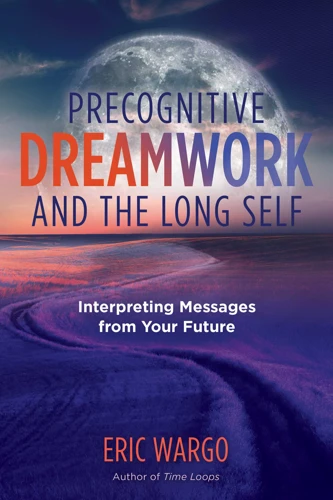
As fascinating as precognitive dreams may seem, there is still uncertainty surrounding the science behind them. Scientists and researchers have been studying dreams and their relationship with the human mind for years. Though there are a number of theories about why and how we have precognitive dreams, no single answer has been identified. In this section, we will delve deeper into the currently accepted scientific explanations and explore the different factors that may influence or play a role in precognitive dreaming experiences.
Quantum Physics and Dreams
The relationship between quantum physics and dreams has been a topic of interest among scientists and researchers. Some theories suggest that the bizarre and nonlinear nature of the dream world could be related to the seemingly inexplicable behavior of quantum particles. Let’s take a closer look at some of the theories regarding quantum physics and dreams:
| Theory | Description |
|---|---|
| Quantum Entanglement | This theory suggests that particles can become entangled, where changes made to one particle simultaneously affect the other, regardless of how far apart they are. Some have speculated that this phenomenon could be occurring in the dream world, where seemingly unrelated events and people could be entangled in ways that we don’t fully understand. |
| Multiverse Theory | According to this theory, there are multiple realities existing simultaneously. In the dream world, we could be tapping into alternate dimensions or universes, where events and people could be drastically different from our waking world. Some scientists have suggested that our dreams could be glimpses into these alternate dimensions. |
While these theories are intriguing, it’s important to note that there is limited scientific evidence to support them. However, the study of quantum physics and its potential relationship to the dream world is an area of research that is still being explored, and could potentially shed light on the mysterious and complex nature of dreams.
The Role of Memory in Precognitive Dreams
One of the theories behind precognitive dreams is the role of memory. Memory is the ability of the brain to store, retain, and recall information. Some experts suggest that precognitive dreams occur when the brain is able to access information from the future stored within the subconscious. This theory is based on the idea that every experience, thought, and event that a person encounters is stored in the memory.
According to this theory, precognitive dreams occur when the brain is able to access information from the future that has already been stored in the memory, even if the person is not consciously aware of it. This information may be in the form of images, sounds, or even smells. The brain searches the memory for relevant information and tries to make sense of it.
It is also possible that the brain may create false memories that mimic the events of the future, leading to a precognitive dream. The brain constantly creates new memories and tries to make connections between them. These connections can sometimes create false memories that seem real. The brain may interpret these false memories as precognitive dreams.
It is important to note that not all memory is conscious. Some memories are stored in the subconscious and may affect a person’s thoughts, feelings, and behavior without them even realizing it. Precognitive dreams could be a result of the brain accessing these stored memories.
| Role of memory in precognitive dreams: |
|---|
|
– Precognitive dreams occur when the brain accesses information from the future stored in the subconscious memory. – The brain searches the memory for relevant information and tries to make sense of it. – The brain may create false memories that mimic events of the future. – Not all memories are conscious and stored memories may affect behavior without realization. |
The Psychology of Precognitive Dreams
The Psychology of Precognitive Dreams:
- Subconscious Processing: Many psychologists believe that precognitive dreams stem from our ability to unconsciously pick up on subtle cues and patterns in our environment. These cues get processed by our subconscious mind and manifest in our dreams, allowing us to anticipate future events.
- Confirmation Bias: Some researchers suggest that our brains are wired to seek out patterns and meanings, even where there may not be any. This phenomenon, called confirmation bias, may cause us to interpret ordinary events as precognitive visions, simply because we are looking for them.
- Emotional State: Our emotional state can also play a role in precognitive dreaming. When we are stressed or anxious, our brains may be more likely to scan for threats or potential dangers in our surroundings, leading to an increased likelihood of precognitive dreams.
- Dream Interpretation: How we interpret our dreams can also impact our beliefs about whether or not they predict the future. Those who are more open to the idea of precognition may be more likely to interpret their dreams in this way, whereas skeptics may be more likely to dismiss them as coincidence.
The psychology behind precognitive dreams is complex and multifaceted, and there is still much to be understood about why and how they occur.
The Different Theories about Precognitive Dreams:
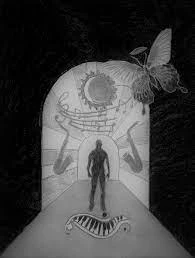
As scientists continue to explore the mysterious phenomenon of precognitive dreams, there have emerged various theories attempting to explain the phenomenon. These theories paint different pictures of how these dreams occur and what they signify, and they draw from diverse fields of study. From divine intervention to neuroscience and quantum physics, each theory proposes a different explanation for the predictive nature of certain dreams. In this section, we will delve into some of the most significant and hotly debated theories attempting to decipher the enigma behind precognitive dreams.
Divine Intervention Theory
One theory about precognitive dreams is the Divine Intervention Theory, which suggests that these dreams are a result of a higher power or divine force granting individuals a glimpse into the future. This theory is rooted in religious and spiritual beliefs, and many who believe in it see precognitive dreams as a form of prophecy.
Those who subscribe to the Divine Intervention Theory believe that these dreams are a way for a religious or spiritual figure to communicate with the individual. They often view the dreams as important messages or warnings that should not be ignored.
However, this theory is not backed by scientific evidence, and skeptics argue that there are many other explanations for the existence of precognitive dreams. While it is possible that some people may interpret their dreams as messages from a divine power, there is no way to prove that this is actually the case.
| Pros | Cons |
| Offers comfort and guidance for those who believe in a higher power | Not supported by scientific evidence |
| Can provide a sense of purpose and meaning to individuals who experience precognitive dreams | May lead individuals to rely too heavily on what they perceive as divine messages, rather than taking action based on their own agency |
| Aligns with certain religious and spiritual traditions | Does not take into account other potential explanations for precognitive dreams, such as the role of memory and the subconscious mind |
Despite these criticisms, the Divine Intervention Theory remains a popular explanation for why some individuals may have precognitive dreams. Whether or not an individual accepts this theory likely depends on their personal beliefs and experiences.
Deja Vu Explanation Theory
One of the prevailing theories about precognitive dreams is the Deja Vu Explanation Theory. This theory suggests that when individuals experience a sense of Deja Vu, it may actually be a recollection of a dream they had previously. This idea is supported by the fact that many people report feeling like they have lived out a particular event before, without actually knowing how or why they feel that way.
Some possible explanations for this theory include:
- The possibility that memory plays a role in precognitive dreaming. Dreams have been known to incorporate past experiences, and it is possible that information from a prior dream may be stored in the memory and subconsciously retrieved when a similar event takes place in reality.
- The possibility that the brain is capable of tuning in to subtle cues in the environment and subconsciously processing them before they become consciously aware of them. This could explain why people sometimes experience a sense of familiarity when they encounter a new situation or environment, as if they have already been there before.
- The possibility that the brain is capable of predicting patterns and events before they occur. This explanation is aligned with the concept of precognition and provides a scientific explanation for why some people may be able to predict future events in their dreams.
While the Deja Vu Explanation Theory does provide a plausible explanation for precognitive dreams, it fails to explain some of the more complex and intricate details that are often present in these types of dreams. For example, some precognitive dreams offer very specific information about future events, including dates and times, which are difficult to explain using this theory alone. Nonetheless, the theory still serves as a useful starting point for understanding the science behind these enigmatic dreams.
Spiritual Belief Theory
One theory about the phenomenon of precognitive dreams is the Spiritual Belief Theory. This theory suggests that our dreams can offer us glimpses into the future because they are influenced by a higher power or divine force. According to this theory, dreams can be used as a means of communication between human beings and the spiritual world or the universe.
In many cultures, dreams have long been seen as powerful tools for spiritual guidance and enlightenment. Some spiritual beliefs even suggest that dreams can reveal hidden knowledge and offer glimpses into the afterlife or other dimensions of existence. The Spiritual Belief Theory posits that precognitive dreams are a result of this higher knowledge being communicated to us through our subconscious mind.
Those who believe in this theory argue that precognitive dreams are not random or meaningless, but rather serve a purpose in guiding our lives. Some suggest that by paying closer attention to our dreams, we can gain important insights and information that can help us make better decisions and lead more fulfilling lives.
However, the Spiritual Belief Theory remains controversial and is not supported by empirical evidence in the scientific community. Some argue that this theory is simply a way of attributing meaning to random occurrences and events in our lives. Others argue that spiritual beliefs are personal and subjective, and therefore difficult to test scientifically.
The Spiritual Belief Theory is just one of several different explanations for the phenomenon of precognitive dreams. While it may offer comfort and guidance to those who subcribe to it, it is important to approach these beliefs with an open, curious, and critical mindset.
| Spiritual Belief Theory |
|---|
| Believes dreams can offer glimpses into the future through divine or spiritual influence. |
| Suggests that dreams serve a purpose in guiding our lives and can provide important insights and information. |
| Controversial and not supported by empirical evidence in the scientific community. |
| Some argue that this theory is simply a way of attributing meaning to random occurrences and events. |
| Important to approach spiritual beliefs with an open and critical mindset. |
Scientific Studies and Findings:
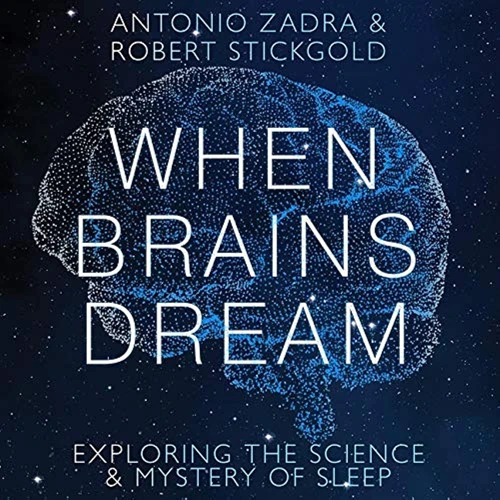
As puzzling as it may seem, there have been numerous scientific studies conducted on the phenomenon of precognitive dreams. The findings of these studies have been subject to much debate and dispute within the scientific community, with some researchers claiming significant proof of future-telling dreams while others vehemently dismissing the idea. Despite this controversy, the topic continues to fascinate researchers and the public alike, prompting further explorations in the field of dream research. Let’s delve deeper into the disputed and significant results of these precognitive dream studies.
The Disputed Results of Precognitive Dream Studies
Studies on the existence of precognitive dreams have always been controversial and disputed among the scientific community. Some studies have reported significant results indicating the presence of precognitive dreams while others have dismissed the idea entirely. Here are some of the disputed results of precognitive dream studies:
- Small Sample Size: Some studies that have reported significant precognitive dream results have had a small sample size, which raises doubts about the accuracy and generalizability of the findings.
- Bias: Some studies have been criticized for having a researcher bias or a participant bias, which could have influenced the results.
- No Control Groups: Many studies that have found evidence of precognitive dreams have not had control groups against which to compare their results, which means it is difficult to know whether the results are due to chance or genuine psychic ability.
- Unreliable Self-Reports: A number of studies rely on self-reported data from participants about their dreams, which could be biased or inaccurate due to a range of factors, including memory distortion or participants’ desire to conform to certain expectations.
While there are disputes about the validity of some of the results of precognitive dream studies, there are also studies that suggest the presence of psychic abilities. It seems that much more research is needed before firm conclusions can be made about the existence and nature of precognitive dreams.
The Significant Results of Precognitive Dream Studies
Several scientific studies have reported significant results regarding the existence of precognitive dreams, implying that there is some form of scientific basis behind the phenomenon. Below are some of the examples of these significant results:
| Study | Significant Results |
|---|---|
| Caroline Watt’s Dream ESP Studies | Out of 18 participants, 12 of them showed significant evidence that they had accurately perceived information during their dreams that they could not have known otherwise, based on chance alone. |
| Stanford’s Maimonides Dream ESP Studies | The study involved 2275 dream reports collected from 5 individuals over a period of 6 years. Results showed a significant number of hits, where the details of the dreams accurately matched the events taking place in reality. |
| Montague Ullman’s Dream Telepathy Studies | Out of 56 participants, 36 achieved a success rate of 1 in 1000, providing evidence that they were able to accurately perceive information from dream telepathy. |
These significant results provide some scientific support for the existence of precognitive dreams. However, it should be noted that these studies are not without controversy and criticism. Some researchers argue that the results are not reliable and may be influenced by other factors, such as chance or selective reporting. Nonetheless, the findings of these studies are remarkable and continue to generate curiosity and interest in the scientific community.
Why Do People Have Precognitive Dreams?
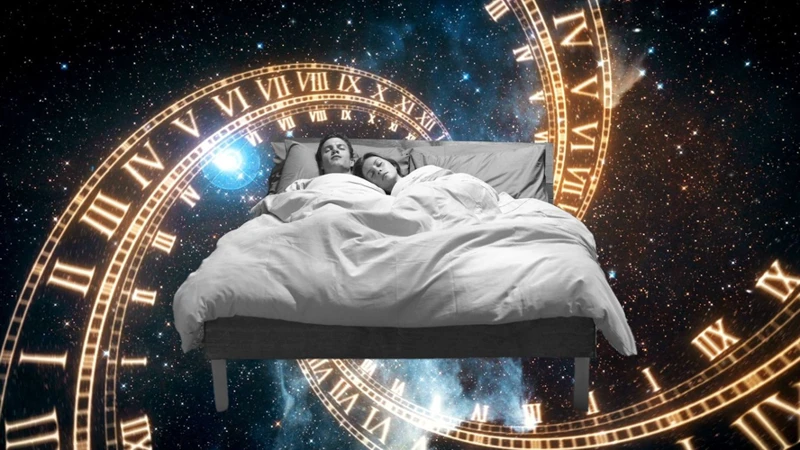
Precognitive dreams have always been a topic of confusion and curiosity throughout history. While some may believe they are simply a result of chance or coincidence, others believe there is a deeper meaning behind them. So, why do people have precognitive dreams?
One theory is that precognitive dreams are related to our subconscious mind. Our subconscious has the power to process and store a vast amount of information that we may not be consciously aware of. It is believed that this information can then manifest itself in our dreams, including glimpses of future events.
Another theory is that precognitive dreams may be a result of our connection to the universe. According to this theory, we are all connected to a higher energy or consciousness, and our dreams may be a way for us to tap into this energy and gain insight into what is to come.
Some also believe that precognitive dreams are a form of intuition or psychic ability. These individuals may have a heightened sense of awareness or sensitivity that allows them to pick up on subtle clues and signals about future events, which then show up in their dreams.
However, despite the many theories and beliefs surrounding precognitive dreams, the truth is that there is still much we don’t know about them. Scientists and researchers continue to study them in an effort to uncover more about the science behind these mysterious dreams.
Can Precognitive Dreams Be Controlled or Improved?
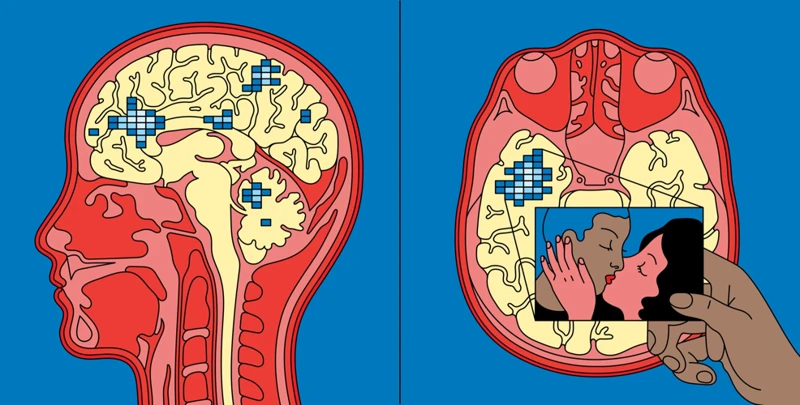
Many people who experience precognitive dreams may wonder if it is possible to control or improve their ability to have such dreams. Unfortunately, the answer to this question is not entirely clear, as there is still much that is unknown about the science behind precognitive dreams.
Some people may attempt to control their dreams through techniques such as lucid dreaming, which involves becoming aware that one is dreaming and then actively attempting to control or direct the dream. However, whether or not this can lead to an increase in precognitive dreams is still a matter of debate.
Similarly, there is limited research on whether certain lifestyle factors or practices can improve one’s ability to have precognitive dreams. However, some people have reported having more vivid or frequent precognitive dreams after practicing meditation or other spiritual techniques.
It is important to note that attempting to control or improve one’s ability to have precognitive dreams can be a double-edged sword. While some people may find it fascinating or exciting to have glimpses of the future, others may find it overwhelming or even frightening. Additionally, there is the risk of misinterpreting or attaching undue significance to a dream, leading to poor decision-making or unnecessary anxiety.
In the end, the ability to have precognitive dreams is still largely a mystery. While there are a variety of techniques and practices that some people may find helpful, there is no clear way to guarantee that one will have these types of dreams. As with most aspects of the human mind, much remains to be explored and understood.
The Ethics of Future-Telling Dreams:
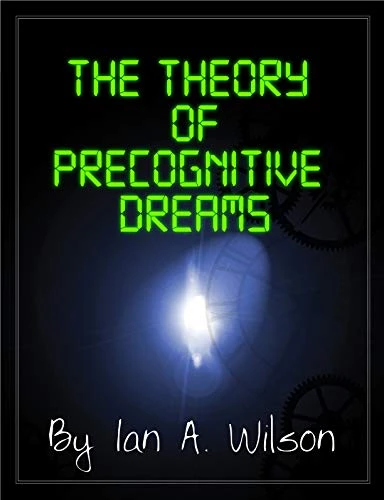
As fascinating as the concept of precognitive dreams may be, the potential ethical implications of having or sharing them cannot be ignored. The ability to see into the future can have a profound impact on people’s lives, and the accuracy and interpretation of these dreams can cause confusion and distress. In this section, we will delve into the ethical considerations of having and sharing precognitive dreams, including issues of responsibility, disclosure, and the effects on personal decision-making. As we explore this complex and controversial topic, it is important to approach it with a sense of curiosity and contemplation, recognizing the profound impact these dreams can have on individuals and society as a whole.
Dealing with Life-Changing Dreams
It’s no secret that life-changing dreams can be difficult to deal with. These dreams can shake us to our core, leaving us with a sense of uncertainty and a need for guidance. So how do we navigate these dreams and what do we do with the information they provide?
One approach is to reflect on the dream and try to decipher its meaning. This can involve looking at the symbols and metaphors in the dream and considering how they relate to your waking life. Additionally, you may want to explore your own emotions and reactions to the dream. Are you scared, excited, or confused? What do these feelings tell you about the dream’s significance?
Another strategy is to seek guidance from trusted sources. This might include talking to a therapist, spiritual leader, or close friend or family member. These individuals can offer a fresh perspective on the dream and help you make sense of its implications.
It’s important to remember that life-changing dreams don’t always predict a certain outcome. While they may offer useful information and guidance, they shouldn’t be taken as a definitive answer. Instead, they should be treated as one piece of information among many, and their significance should be considered in the context of your overall life situation.
Ultimately, dealing with life-changing dreams is a personal journey that requires patience, self-reflection, and an open mind. By taking the time to explore these dreams and their meanings, we can gain valuable insights into ourselves and our lives.
The Responsibility of Telling the Future
As fascinating as it may be to have a dream that predicts the future, the responsibility of sharing that information is a heavy burden. One must consider the ethical implications of revealing the contents of a precognitive dream. While some may argue that it is their duty to inform others of what they have foreseen, it is important to approach the situation with caution.
Pros:
| Provide Warning | Sharing a precognitive dream could provide a warning to others and potentially prevent harm or danger. |
| Assist Decision-Making | Certain precognitive dreams may provide insight into difficult decisions, allowing individuals to make more informed choices. |
Cons:
| False Hope | In some cases, a precognitive dream may not come to fruition, leading to false hope and disappointment. |
| Stress and Anxiety | The information revealed in a precognitive dream may cause stress and anxiety for individuals, particularly if the outcome is negative or life-altering. |
| Alter the Future | It is possible that by sharing a precognitive dream, individuals may unintentionally alter the future they foresaw. |
Ultimately, the decision to share a precognitive dream should be made with careful consideration of both the potential benefits and drawbacks. It is important to weigh the impact of the information on the individual and the world around them. If a decision is made to share the dream, it should be done so in a respectful and compassionate manner, recognizing the gravity of the situation.
The Future of Precognitive Dream Research:
As research into precognitive dreams continues to expand, it’s clear that there is much more to be learned about this fascinating phenomenon. With the integration of new technology and techniques, scientists and researchers around the world are examining the science behind precognitive dreams in more depth than ever before.
Neurological Studies: One avenue of research involves studying the brains of individuals who have reported experiencing precognitive dreams. Scientists hope that by analyzing these individuals’ brain activity during sleep, they might find specific patterns that are associated with prophetic dreaming.
Development of Dream Recorders: Another exciting area of research involves the development of dream recording devices. These machines have the potential to capture the content of dreams in real-time, making it possible to study precognitive dreams in a much more direct way. Dream recording technology is still in its infancy, but scientists are optimistic about its future use in the field.
Analysis of Cultural Beliefs and Practices: Some researchers are focusing on the cultural and social aspects of precognitive dreams. By studying how different cultures view and interpret prophetic dreaming, they hope to gain a better understanding of the various factors that contribute to this phenomenon.
Collaboration with Spiritual Communities: Given that many individuals who experience precognitive dreams do so within a spiritual context, partnerships between scientists and spiritual communities are becoming increasingly important. Researchers are working with shamans, mediums, and other spiritual leaders to better understand the connection between spirituality and prophetic dreaming.
The future of precognitive dream research is bright, with exciting new developments on the horizon. By working together and utilizing the latest technology and techniques, researchers are poised to unlock the secrets behind this fascinating phenomenon, with the potential to revolutionize our understanding of human consciousness and the nature of time itself.
Conclusion:
After examining the science and theories behind precognitive dreams, it is clear that there is still much to be discovered and understood about this phenomenon. While some studies have shown significant evidence supporting the existence and predictive nature of these dreams, others have disputed the results.
Despite the lack of concrete evidence, many people continue to report experiencing precognitive dreams, and the question remains: why do these dreams occur? Is there a scientific explanation, or is it simply a matter of faith and belief?
While some may attribute these dreams to divine intervention, others suggest that they are a result of the psychological and memory processes that occur during sleep. Additionally, research in the field of quantum physics has shed light on the idea that dreams may provide a glimpse into the interconnectedness of the universe.
Regardless of the cause, the ethics of using precognitive dreams for future-telling purposes must be carefully considered. It is important to remember the potential consequences of predicting the future, especially if the information revealed could significantly impact someone’s life.
As the study of precognitive dreams continues, it is crucial that researchers approach the topic with an open mind and a willingness to consider all possibilities. While it may never be fully understood, the mystery and intrigue behind these dreams will undoubtedly continue to captivate and inspire people for years to come.
Frequently Asked Questions
What is the difference between a regular dream and a precognitive dream?
A regular dream is simply a creation of the brain during sleep, while a precognitive dream is believed to show glimpses of events that may happen in the future.
Can everyone experience precognitive dreams?
There is no specific scientific evidence to suggest that everyone can experience precognitive dreams. Some people may be more sensitive to these types of dreams than others.
Are precognitive dreams based on scientific evidence or just superstition?
The scientific community is still divided on the topic of precognitive dreams. While some studies have shown evidence of future-telling dreams, others have disputed these findings.
What is the role of memory in precognitive dreams?
Memory plays a crucial role in the formation of precognitive dreams, as the brain processes past experiences and emotions to create a framework for predicting possible future events.
Can precognitive dreams be controlled or improved?
There is currently no way to control or improve the occurrence of precognitive dreams. However, keeping a dream journal and practicing meditation or relaxation techniques may help increase dream recall.
What is the divine intervention theory?
The divine intervention theory suggests that precognitive dreams are a result of communication from a higher power, such as a deity or supernatural force.
How does quantum physics relate to precognitive dreams?
Quantum physics theories, such as the concept of quantum entanglement, suggest that the future may be intertwined with the present moment. Some researchers believe that precognitive dreams may be a glimpse into this entanglement.
What are some common themes in precognitive dreams?
Common themes in precognitive dreams include visions of disasters or accidents, significant life events such as weddings or births, and encounters with deceased loved ones.
Is it ethical to tell someone about a precognitive dream?
The ethics of sharing a precognitive dream with someone depend on the individual situation. It is important to carefully consider the potential impact of sharing such information before doing so.
What does the future of precognitive dream research look like?
The future of precognitive dream research is uncertain, but advancements in technology and neuroscience may provide more insight into this mysterious phenomenon.








